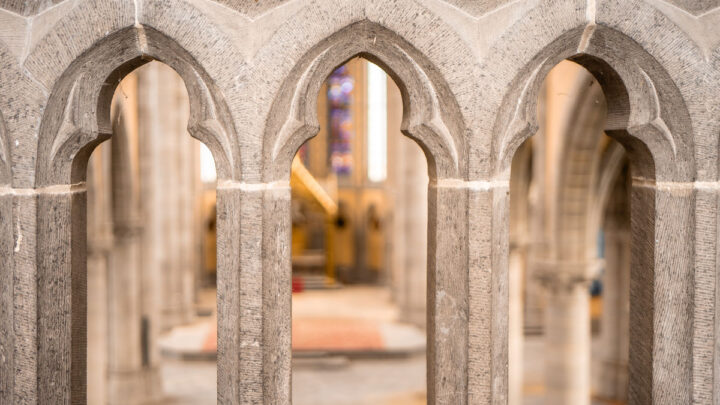A couple of years ago, I was visiting with some friends in their new home. They had bought a small closed church in the mountains and turned it into a family home with two bedrooms, a large kitchen, dining, and gathering room, a guest loft, and a library. You could see how the nave became the great room, how the choir loft and chancel became the two bedrooms, and how the entrance became the front porch. As we finished our night meal, those of us gathered (all preachers) began to sing some old hymns (like you do). It seemed to me that the building remembered that this music had been sung in this place before, for there was a resonance in the space that was made of more than those of us gathered. It felt to me that I was experiencing the communion of saints. This is not a Halloween story; it’s an All Saints Story. It is a reminder that we are part of something bigger than ourselves, that came before us and will last after us, that is ultimately not about us. We need reminding sometimes, don’t we, that because our life is ultimately in God, it is not only about ourselves. We are those who give ourselves to things that outlast us.
The lectionary texts for November help us turn our thoughts in this direction, to the bigger purposes. For Zacchaeus, salvation is not about a spiritual hereafter but a concrete action he takes in the here and now to participate in justice for his neighbors. It costs him something to participate in the salvation Jesus offers. One senses from the text that he is not resentful but that his eyes have been opened to his willful participation in an unjust system.
A “what about” story involving a woman married in turn to seven brothers and still childless allows Jesus to speak to the liberation of who and what has the power to determine your worth. When seen through the lens of heaven and resurrection life, earthly ties grow strangely dim.
Seeing the destruction of a beloved temple makes some people wonder if this is the thing that will usher in God’s direct intervention into human affairs. The truth is that there have been wars and rumors of wars since the world began, and there will be. I often say “beware the arrogance” of believing your time is somehow more specially likely to be the time of Jesus’ return than any other time. It’s always the right time to frame our lives through the lens of the gospel rather than the current moment.
On Christ the King Sunday, the final Sunday of the church year, on the cusp of Advent, we are reminded that the way God is for us is not as a king but as a shepherd. No one wants to try to digest Thanksgiving turkey into a diatribe about Christian nationalism. But the language of a warrior God whose primary job is defending our particular country in our particular moment is shallow language, small-minded, dangerous, and heretical. We must constantly be reminded that our God is a good shepherd, not a thunderbolt-wielding Zeus who is personally vindictive.
All these texts invite us to shape our lives from the perspective of God’s future, not merely our present. Only in that way does the Advent of Christ come as good news.
Claire

